#Les Légions Noires
Photo

111 notes
·
View notes
Text
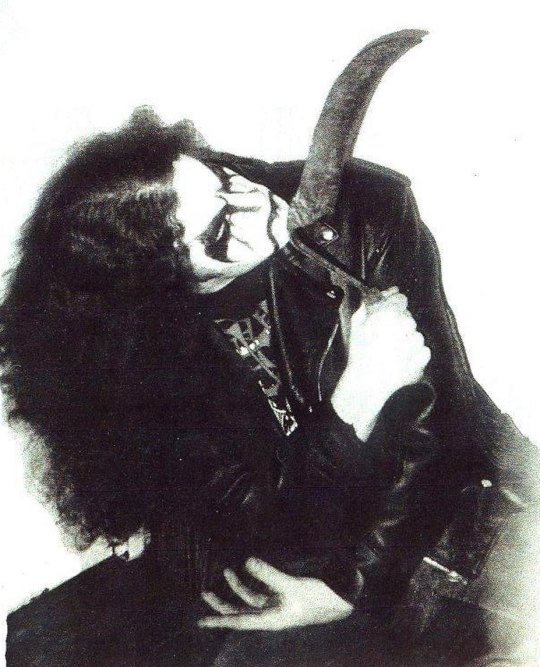
Vlad Tepes
posted by Arcane Archivist Zine
115 notes
·
View notes
Text
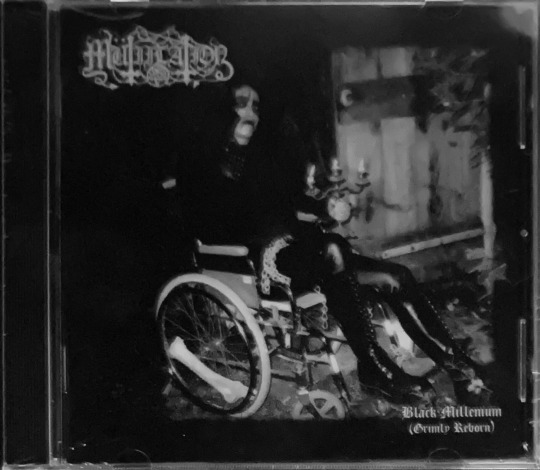
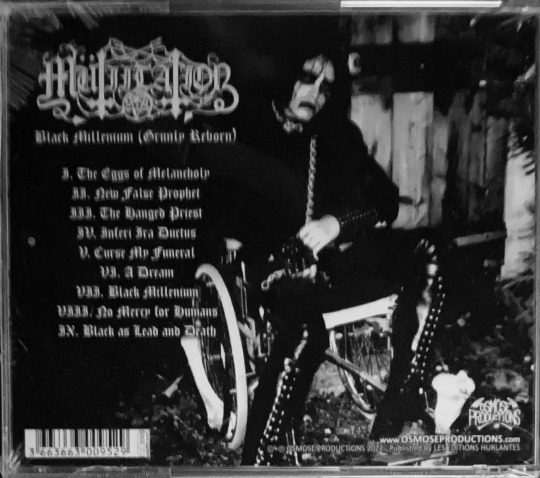
9 notes
·
View notes
Text
Mütiilation - Black Metal Cult - 2024
3 notes
·
View notes
Text

Mutiilation - Black Millenium (Grimly Reborn)
Another classic Depressive black metal record from Legendary one man band Mutiilation. Genuinely so much beautiful energy and depressing slow moving icey riffs. The ability to produce raw black metal while still having a semblance of melody requires so much compositional attention to detail and expertise, that these records are a wonder. Definitely one of my personal faves!
#now listening#album recs#music recs#music#metal#classic album#black metal#depressive black metal#raw black metal#Les légions noires#mutiilation#mütiilation
1 note
·
View note
Text
youtube
1 note
·
View note
Text
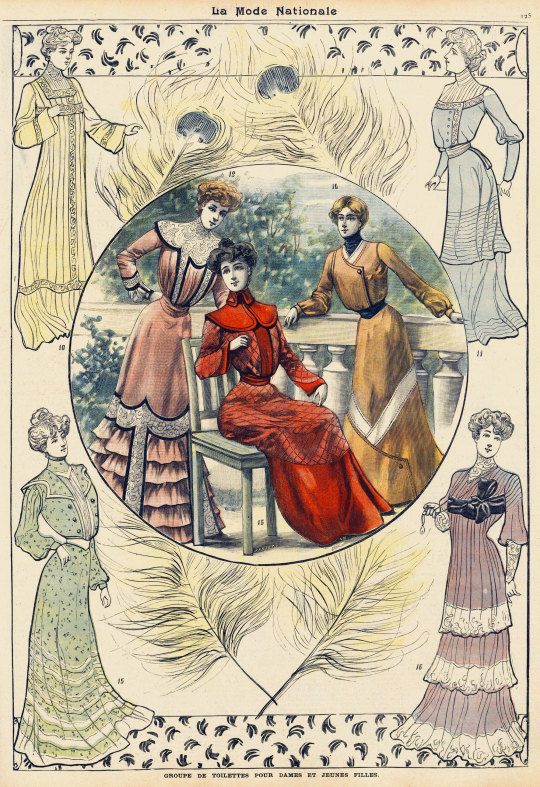
La Mode nationale, no. 16, 19 avril 1902, Paris. Groupe de toilettes pour dames et jeunes filles. Bibliothèque nationale de France
(10) Robe d'intérieur pour jeune femme ou dame d'âge moyen en fantaisie beige. Robe droite à plis repincés; formant dans le bas un volant auquel une broderie ton sur ton sert de tête. Même broderie devant; même broderie dessinant l'empiècement. Décolleté carré sur une guimpe de linon blanc; col brodé. Manche droite, large, ornée de broderie.
(10) House dress for young woman or middle-aged lady in fancy beige. Straight dress with re-pinched pleats; forming a ruffle at the bottom to which tone-on-tone embroidery serves as a head. Same embroidery on the front; same embroidery drawing the yoke. Square neckline on a white lawn wimple; embroidered collar. Straight, wide sleeve, decorated with embroidery.
Matériaux: 7m,50 de lainage.
—
(11) Robe de visites pour jeune femme ou jeune fille, en voile bleu-pastel. Sur une première jupe à plis fins, tombe une seconde jupe également plissée à repincés. Corsage blouse décolleté entre-deux de guipure descendant pour dissimuler la fermeture. Basque rapportée derrière. Manche large, resserrée au coude, par un bouquet de fronces; ceinture drapée de soie blanche.
(11) Visiting dress for young woman or girl, in pastel blue voile. On top of a first skirt with fine pleats, falls a second skirt also with re-pinched pleats. Blouse bodice with insertion neckline and guipure descending to conceal the closure. Basque attached behind. Wide sleeve, tightened at the elbow, with a bunch of gathers; belt draped in white silk.
Matériaux: 10 mètres de voile bleu; 2 mètres de mousseline de soie; 0m,60 soie blanche.
—
(12) Robe élégante pour jeune femme, en bengaline rose bengale. Jupe en forme terminée par cinq volants un peu froncés. Au-dessus des volants, entre-deux de guipure en forme de dents rondes et faisant deux quilles de chaque côté du tablier. Des dépassants de taffetas noir encadrent l'entre-deux. Corsage froncé, voilé d'un grand col de guipure et de deux pattes rappelant la garniture de la jupe. La manche s'écourte sur un bouffant en mousseline de soie blanche.
(12) Elegant dress for young women, in bengal pink bengaline. Shaped skirt finished with five slightly gathered ruffles. Above the ruffles, guipure inlays in the shape of round teeth and making two keels on each side of the apron. Black taffeta overhangs frame the space in between. Gathered bodice, veiled with a large guipure collar and two tabs reminiscent of the skirt's trim. The sleeve is shortened on a white silk chiffon bouffant.
Matériaux: 10 mètres de bengaline; guipure en laize.
—
(13) Robe de ville pour jeune femme ou jeune fille. Jupe en lainage vieux rouge quadrillé bordée en forme d'un volant plat en taffetas rouge "légion d'honneur". Corsage-blouse, fermé devant sous une large patte de taffetas. Col en forme en taffetas et petit col rabattu en lainage bordé d'un biais de soie. Manche droite terminée par un biais remontant en taffetas.
(13) City dress for young women or girls. Skirt in old red checkered wool lined in the shape of a flat ruffle in red “legion of honor” taffeta. Blouse-bodice, closed in front under a large taffeta tab. Shaped collar in taffeta and small turn-down collar in wool edged with silk bias. Straight sleeve finished with a rising taffeta bias.
Matériaux: 5 mètres de lainage; 6 mètres de taffetas.
—
(14) Robe simple pour jeune femme ou jeune fille, en suédoise d'été "son mouillé". Jupe en forme ornée d'un biais en forme piqué et fixé de côté par un bouton fantaisie. Large biais de drap blanc piqué, posé en forme. Corsage croisé, décolleté sur un dessous de drap blanc; guimpe et ceinture en liberty saphir foncé. Manche froncée dans un poignet droit.
(14) Simple dress for young woman or girl, in Swedish summer "wet wool". Shaped skirt decorated with a pique-shaped bias and secured on the side with a fancy button. Large bias of white stitched cloth, laid in shape. Crossed bodice, neckline on a white cloth underside; gimp and belt in dark sapphire liberty. Sleeve gathered in a right cuff.
Matériaux: 5m,50 de lainage; 0m,50 de drap blanc.
—
(15) Robe de visites pour jeune femme ou jeune fille, en voile fleuri vert-d'eau. Jupe cerclée de biais de soie blanche. Boléro ouvert sur un dessous en mousseline de soie blanche. Hausse-col et col découpé liserés de biais blancs. Manche plissée à l'épaule et froncée dans un poignet droit. Ceinture à pointe en soie blanche.
(15) Visiting dress for young women or girls, in water-green floral voille. Skirt circled with white silk bias. Bolero open on a white silk chiffon underside. Ruffled collar and cut-out collar with white bias edging. Sleeve pleated at the shoulder and gathered at a straight cuff. White silk pointed belt.
Matériaux: 7 mètres de voile; 3 mètres de taffetas; 0m,60 de mousseline de soie.
—
(16) Robe de réception pour jeune femme ou dame d'âge moyen, en crêpe vieux rose. Robe composée de volants froncés bordés de dentelle; le devant est droit; les plis maintenus par une écharpe nouée en satin noir. Décolleté en V sur une guimpe de dentelle. Manche rayée en haut de repincés, froncés au-dessous du coude dans un poignet collant en dentelle à clair.
(16) Reception dress for young or middle-aged ladies, in old pink crepe. Dress composed of gathered ruffles edged with lace; the front is straight; the folds held by a tied black satin scarf. V-neckline on a lace wimple. Striped sleeve at the top, gathered below the elbow in a clear lace fitted cuff.
Matériaux: 12 mètres de crêpe.
#La Mode nationale#20th century#1900s#1902#on this day#April 19#periodical#fashion#fashion plate#color#description#bibliothèque nationale de france#dress#collar#house
39 notes
·
View notes
Text


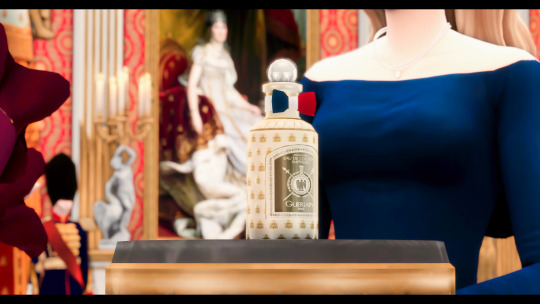
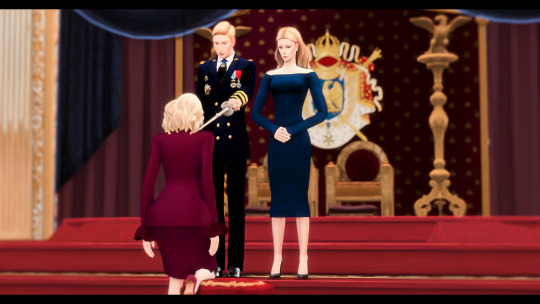
⚜ Le Cabinet Noir | Throne room at the Tuileries Palace, 22 Prairial An 230
Beginning ▬ Previous ▬ Next
The day after the wedding, Their Imperial Majesties received numerous ambassadors and representatives of Francesim. Among them, the luxury perfume house Guerlain was awarded the Légion d'Honneur. Véronique Guerlain, the current head of Guerlain, presents Her Majesty the Empress with a new imperial eau-de-cologne: le Flacon aux Abeilles. The Empress entrusts the House of Guerlain with the approval of the Crown, thus becoming the official Perfumer of the Imperial Family.
⚜ Traduction française
Le lendemain des noces, Leurs Majestés Impériales reçoivent de nombreux ambassadeurs et représentants de la Francesim. Parmi eux, la Maison de parfumerie de luxe Guerlain reçoit la Légion d'Honneur. Véronique Guerlain, l'actuelle dirigeante de la Maison Guerlain, offre à Sa Majesté l'Impératrice une nouvelle eau-de-cologne impériale : le Flacon aux Abeilles. L'Impératrice confie à la Maison Guerlain l'approbation de la Couronne, et devient ainsi le Parfumeur officiel de la famille impériale.
#simparte#ts4#royal simblr#ts4 royal#sims 4 royal#sim : louis#sims 4#sims 4 fr#sim : charlotte#weddingv#ts4 royals#ts4 royal family#ts4 royal simblr#ts4 royalty#ts4 royal legacy#ts4 royal wedding#sims 4 royal story#sims 4 royalty#sims 4 royal family#sims 4 royal legacy#le cabinet noir
42 notes
·
View notes
Text
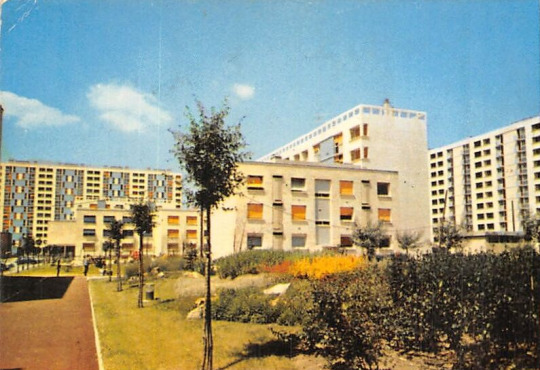


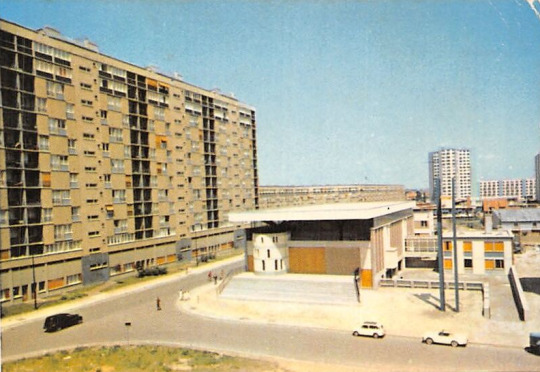
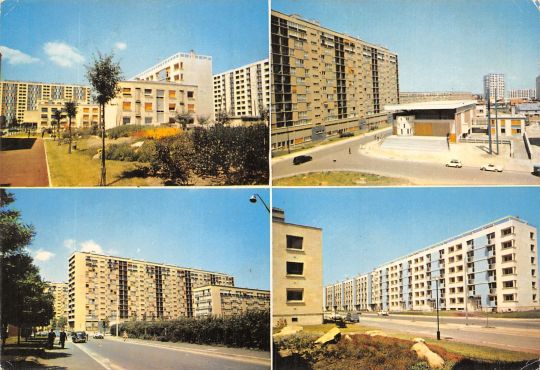

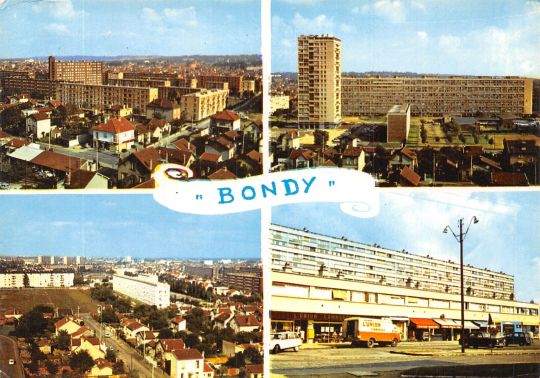
93 Bondy 1954 les grands ensembles HLM, terre d’accueil...Les premiers HLM datent de 1925-1930, mais au nord de la ville, leur construction ne commence que dans les années 1950-1960. A cette période d’urbanisme galopant, les promoteurs achètent les terres du nord encore disponibles pour y construire de grands ensembles immobiliers. En 1954, Bondy compte 22 411 habitants, la ville en comptera 51 653 en 1968, soient plus de 2 000 nouveaux habitants par an ! De nouveaux quartiers flambant neufs accueillent des populations migrantes chahutées par le vent de l’histoire, des pieds noirs, puis des familles immigrées d’Afrique du Nord, du Portugal, et d’Afrique sub-saharienne, notamment du Mali. Ville dynamique, marquée par des modes d’urbanisme contrasté, Bondy a ainsi toujours fait figure de terre d’accueil. C’est aujourd’hui de cette complexité urbaine et de cette mixité humaine que la ville tire sa richesse et entreprend un projet ambitieux de renouvellement urbain. C’est au tout début du 19e siècle, lors des derniers soubresauts de l’Empire Napoléonien, que Bondy va se retrouver sur le devant de la scène géopolitique européenne. En 1814, alors que Napoléon Ier rentre en France avec une armée battue, l’Europe entière coalisée contre l’Empire, est à ses trousses. 700 000 Russes, Prussiens, Autrichiens, Suédois, Bavarois, Wurtembergois, Hollandais, Allemands franchissent le Rhin et marchent sur Paris. Le 27 mars, le corps d’armée du général prussien Yorch vainc, dans la forêt de Bondy, les corps français. Temporairement occupé par les troupes russes, Bondy devient le quartier général de l’Empereur de Russie et du Roi de Prusse. La défaite française, lors de la Bataille de Paris, marque la fin des opérations militaires de la Campagne de France et conduit à la première abdication de Napoléon puis la Restauration des Bourbons. Le 10 avril, des détachements des six premières légions de la garde nationale de Paris se rendent à Bondy pour y recevoir Son Altesse Royale Monsieur, frère du roi Louis XVIII. En 1802, les travaux de percement du Canal de l’Ourcq, voulus par Napoléon 1er pour apporter l’eau à Paris, est un fait marquant de son urbanisme et va permettre à partir de 1821, date à laquelle s’achèvent les travaux, l’installation d’industries, notamment des scieries puis des centrales à béton, qui seront utiles plus tard pour construire des logements. En 1860-1870, l’arrivée du chemin de fer et de la ligne Paris-Strasbourg marque un tournant dans l’évolution démographique de la ville. Beaucoup d’Alsaciens et de Lorrains qui n’ont pas voulu devenir allemands et qui travaillaient en nombre pour les chemins de fer, s’installent dans le quartier près de la gare. Au nord de la ville, des paysans cultivent toujours leurs champs, notamment des maraîchers, tandis que l’urbanisme se développe vers l’ouest et le sud. En 1905, une partie de la ville devient Les Pavillons-sous-Bois. C’est à cette date que se déploie la zone pavillonnaire du sud de la ville avec des maisons en meulière, typique de la région parisienne.
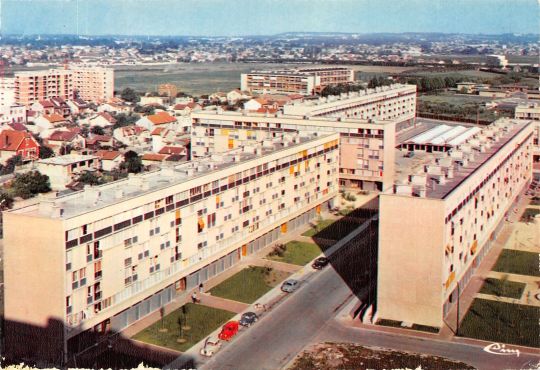
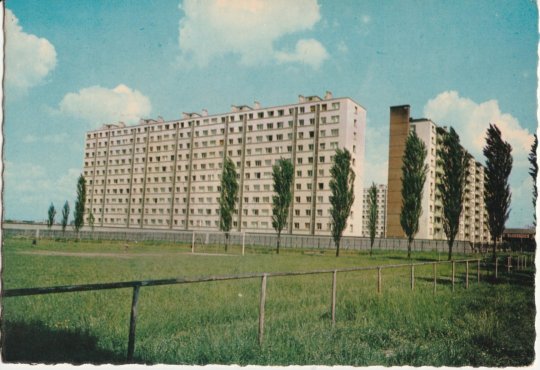
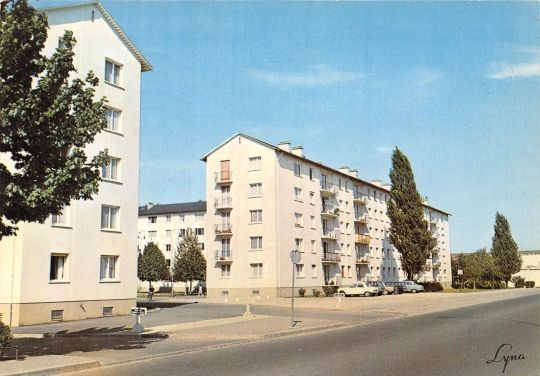

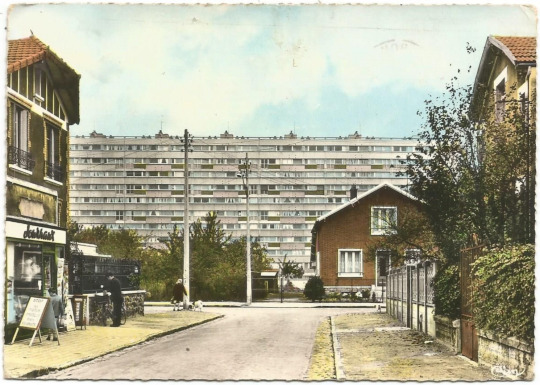
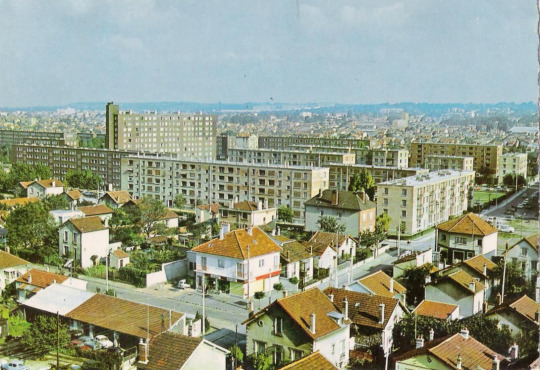
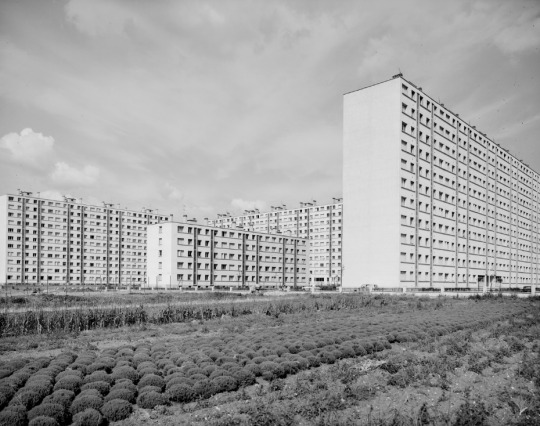

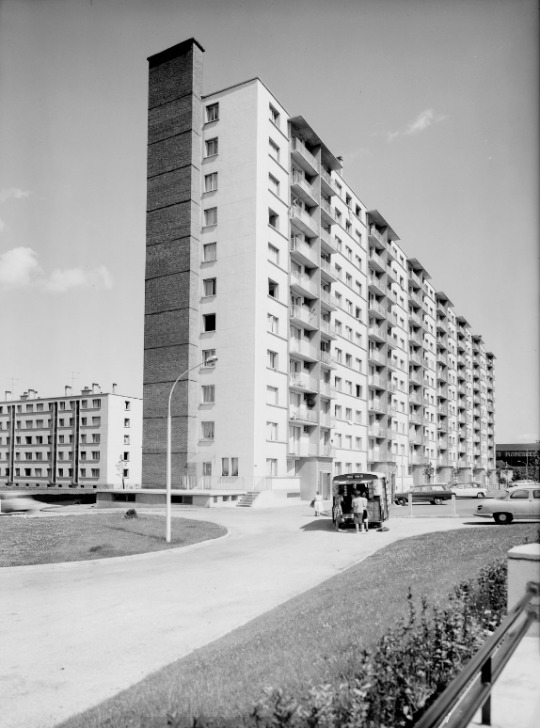

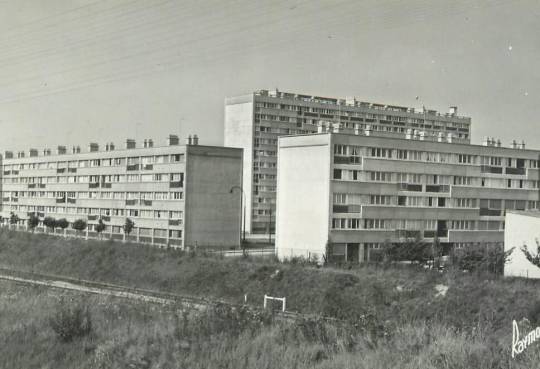
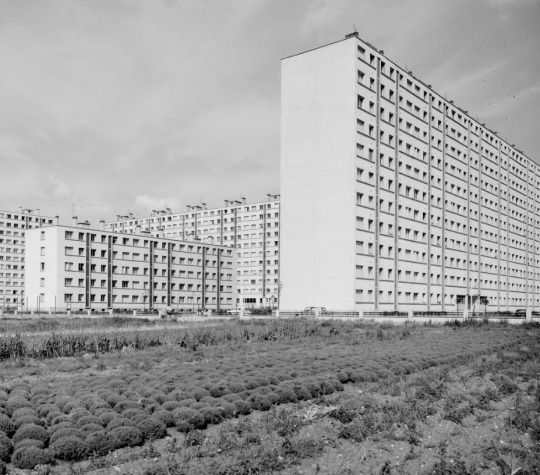



17 notes
·
View notes
Text
The Stranger
Aujourd'hui, maman est morte. Ou peut-être hier, je ne sais pas. J'ai reçu un télégramme de l'asile : « Mère décédée. Enterrement demain. Sentiments distingués. » Cela ne veut rien dire. C'était peut-être hier.
Today, Mum died. Or maybe yesterday, I don't know. I got a telegram from the asylum: "Mother dead. Burial tomorrow. Sentiments distingués." It doesn't mean anything. Maybe it was yesterday.
L'asile de vieillards est à Marengo, à quatre-vingts kilomètres d'Alger. Je prendrai l'autobus à deux heures et j'arriverai dans l'après-midi. Ainsi, je pourrai veiller et je rentrerai demain soir. J'ai demandé deux jours de congé à mon patron et il ne pouvait pas me les refuser avec une excuse pareille. Mais il n'avait pas l'air content. Je lui ai même dit : « Ce n'est pas de ma faute. »
The old people's home is in Marengo, eighty kilometres from Algiers. I will take the bus at two o'clock and arrive in the afternoon. That way I can stay up and I'll be back tomorrow evening. I asked my boss for two days off and he couldn't refuse me with an excuse like that. But he didn't look happy. I even told him, "It's not my fault."
Il n'a pas répondu. J'ai pensé alors que je n'aurais pas dû lui dire cela. En somme, je n'avais pas à m'excuser. C'était plutôt à lui de me présenter ses condoléances. Mais il le fera sans doute après-demain, quand il me verra en deuil. Pour le moment, c'est un peu comme si maman n'était pas morte. Après l'enterrement, au contraire, ce sera une affaire classée et tout aura revêtu une allure plus officielle.
He did not answer. I thought then that I should not have told him that. In short, I had nothing to apologise for. It was rather for him to offer me his condolences. But he will probably do so the day after tomorrow, when he sees me in mourning. For the moment, it's as if Mum hasn't died. After the funeral, on the contrary, it will be a closed affair and everything will have taken on a more official air.
J'ai pris l'autobus à deux heures. Il faisait très chaud. J'ai mangé au restaurant, chez Céleste, comme d'habitude. Ils avaient tous beaucoup de peine pour moi et Céleste m'a dit : « On n'a qu'une mère. » Quand je suis parti, ils m'ont accompagné à la porte. J'étais un peu étourdi parce qu'il a fallu que je monte chez Emmanuel pour lui emprunter une cravate noire et un brassard. Il a perdu son oncle, il y a quelques mois.
I took the bus at two o'clock. It was very hot. I ate at the restaurant, at Céleste's, as usual. They all felt very sorry for me and Celeste said, "We only have one mother. When I left, they walked me to the door. I was a bit dizzy because I had to go up to Emmanuel's house to borrow a black tie and an armband. He lost his uncle a few months ago.
J'ai couru pour ne pas manquer le départ. Cette hâte, cette course, c'est à cause de tout cela sans doute, ajouté aux cahots, à l'odeur d'essence, à la réverbération de la route et du ciel, que je me suis assoupi. J'ai dormi pendant presque tout le trajet. Et quand je me suis réveillé, j'étais tassé contre un militaire qui m'a souri et qui m'a demandé si je venais de loin. J'ai dit « oui » pour n'avoir plus à parler.
I ran so as not to miss the start. This hurry, this race, it is because of all this no doubt, added to the bumps, the smell of petrol, the reverberation of the road and the sky, that I dozed off. I slept for most of the journey. And when I woke up, I was pressed up against a soldier who smiled at me and asked me if I had come from far away. I said "yes" so I wouldn't have to talk anymore.
L'asile est à deux kilomètres du village. J'ai fait le chemin à pied. J'ai voulu voir maman tout de suite. Mais le concierge m'a dit qu'il fallait que je rencontre le directeur. Comme il était occupé, j'ai attendu un peu. Pendant tout ce temps, le concierge a parlé et ensuite, j'ai vu le directeur : il m'a reçu dans son bureau. C'était un petit vieux, avec la Légion d'honneur. Il m'a regardé de ses yeux clairs. Puis il m'a serré la main qu'il a gardée si longtemps que je ne savais trop comment la retirer. Il a consulté un dossier et m'a dit :
The asylum is two kilometres from the village. I walked all the way. I wanted to see my mother straight away. But the caretaker told me I had to meet the director. As he was busy, I waited for a while. During all this time, the concierge talked and then I saw the director: he received me in his office. He was a little old man, with the Legion of Honour. He looked at me with his light eyes. Then he shook my hand, which he held for so long that I didn't know how to take it back. He consulted a file and said to me:
« Mme Meursault est entrée ici il y a trois ans. Vous étiez son seul soutien. » J'ai cru qu'il me reprochait quelque chose et j'ai commencé à lui expliquer. Mais il m'a interrompu : « Vous n'avez pas à vous justifier, mon cher enfant. J'ai lu le dossier de votre mère. Vous ne pouviez subvenir à ses besoins. Il lui fallait une garde. Vos salaires sont modestes. Et tout compte fait, elle était plus heureuse ici. » J'ai dit : « Oui, monsieur le Directeur. » Il a ajouté : « Vous savez, elle avait des amis, des gens de son âge. Elle pouvait partager avec eux des intérêts qui sont d'un autre temps. Vous êtes jeune et elle devait s'ennuyer avec vous. »
"Mme Meursault came here three years ago. You were her only support. I thought he was reproaching me for something and I started to explain. But he interrupted me: "You don't have to justify yourself, my dear child. I read your mother's file. You could not support her. She needed care. Your wages are modest. And all in all, she was happier here. I said, "Yes, Director." He added: "You know, she had friends, people her own age. She could share with them interests that are from another time. You are young and she must have been bored with you.
C'était vrai. Quand elle était à la maison, maman passait son temps à me suivre des yeux en silence. Dans les premiers jours où elle était à l'asile, elle pleurait souvent. Mais c'était à cause de l'habitude. Au bout de quelques mois, elle aurait pleuré si on l'avait retirée de l'asile. Toujours à cause de l'habitude. C'est un peu pour cela que dans la dernière année je n'y suis presque plus allé. Et aussi parce que cela me prenait mon dimanche - sans compter l'effort pour aller à l'autobus, prendre des tickets et faire deux heures de route.
It was true. When she was at home, Mum used to follow me with her eyes in silence. In the first days she was in the asylum, she often cried. But that was just habit. After a few months, she would have cried if she had been taken out of the asylum. Always because of habit. That's why in the last year I hardly went there anymore. And also because it took up my Sunday - not to mention the effort of going to the bus, getting tickets and driving two hours.
Le directeur m'a encore parlé. Mais je ne l'écoutais presque plus. Puis il m'a dit : « Je suppose que vous voulez voir votre mère. » Je me suis levé sans rien dire et il m'a précédé vers la porte. Dans l'escalier, il m'a expliqué : « Nous l'avons transportée dans notre petite morgue. Pour ne pas impressionner les autres. Chaque fois qu'un pensionnaire meurt, les autres sont nerveux pendant deux ou trois jours. Et ça rend le service difficile. »
The director spoke to me again. But I hardly listened to him anymore. Then he said, "I suppose you want to see your mother. I got up without saying anything and he preceded me to the door. On the stairs he explained, "We took her to our little mortuary. So as not to impress the others. Every time a resident dies, the others are nervous for two or three days. And that makes the service difficult.
Nous avons traversé une cour où il y avait beaucoup de vieillards, bavardant par petits groupes. Ils se taisaient quand nous passions. Et derrière nous, les conversations reprenaient. On aurait dit d'un jacassement assourdi de perruches. À la porte d'un petit bâtiment, le directeur m'a quitté : « Je vous laisse, monsieur Meursault. Je suis à votre disposition dans mon bureau. En principe, l'enterrement est fixé à dix heures du matin. Nous avons pensé que vous pourrez ainsi veiller la disparue. Un dernier mot : votre mère a, paraît-il, exprimé souvent à ses compagnons le désir d'être enterrée religieusement. J'ai pris sur moi, de faire le nécessaire. Mais je voulais vous en informer. » Je l'ai remercié. Maman, sans être athée, n'avait jamais pensé de son vivant à la religion.
We passed through a courtyard where there were many old men, chatting in small groups. They were silent as we passed. And behind us, the conversations started again. It sounded like the muffled chatter of parakeets. At the door of a small building, the director left me: "I leave you, Mr Meursault. I am at your disposal in my office. In principle, the funeral is scheduled for ten in the morning. We thought that you would be able to keep an eye on the deceased. One last word: your mother, it seems, often expressed to her companions the desire to be buried religiously. I have taken it upon myself to make the necessary arrangements. But I wanted to inform you. I thanked him. Mum, without being an atheist, had never thought about religion while she was alive.
Je suis entré. C'était une salle très claire, blanchie à la chaux et recouverte d'une verrière. Elle était meublée de chaises et de chevalets en forme de X. Deux d'entre eux, au centre, supportaient une bière recouverte de son couvercle. On voyait seulement des vis brillantes, à peine enfoncées, se détacher sur les planches passées au brou de noix. Près de la bière, il y avait une infirmière arabe en sarrau blanc, un foulard de couleur vive sur la tête.
I entered. It was a very bright room, whitewashed and covered with a glass roof. It was furnished with chairs and X-shaped trestles. Two of them, in the centre, held a bier with its lid on. Only shiny screws, barely sunken, could be seen sticking out of the boards, which had been painted with walnut stain. Next to the bier was an Arab nurse in a white smock, a brightly coloured scarf on her head.
À ce moment, le concierge est entré derrière mon dos. Il avait dû courir. Il a bégayé un peu : « On l'a couverte, mais je dois dévisser la bière pour que vous puissiez la voir. » Il s'approchait de la bière quand je l'ai arrêté. Il m'a dit : « Vous ne voulez pas ? » J'ai répondu : « Non. » Il s'est interrompu et j'étais gêné parce que je sentais que je n'aurais pas dû dire cela. Au bout d'un moment, il m'a regardé et il m'a demandé : « Pourquoi ? » mais sans reproche, comme s'il s'informait. J'ai dit : « Je ne sais pas. » Alors tortillant sa moustache blanche, il a déclaré sans me regarder : « Je comprends. »
At that moment, the caretaker came in behind my back. He must have been running. He stammered a little, "We've got it covered, but I've got to unscrew the bier so you can see it." He was approaching the bier when I stopped him. He said, "Don't you want to?" I said, "No." He paused and I was embarrassed because I felt I shouldn't have said that. After a while, he looked at me and asked, "Why?" but without reproach, as if he was inquiring. I said, "I don't know. Then twirling his white moustache, he said without looking at me, "I understand."
Il avait de beaux yeux, bleu clair, et un teint un peu rouge. Il m'a donné une chaise et lui-même s'est assis un peu en arrière de moi. La garde s'est levée et s'est dirigée vers la sortie. À ce moment, le concierge m'a dit : « C'est un chancre qu'elle a. » Comme je ne comprenais pas, j'ai regardé l'infirmière et j'ai vu qu'elle portait sous les yeux un bandeau qui faisait le tour de la tête.
À la hauteur du nez, le bandeau était plat. On ne voyait que la blancheur du bandeau dans son visage. Quand elle est partie, le concierge a parlé : « Je vais vous laisser seul. »
He had beautiful eyes, light blue, and a slightly red complexion. He gave me a chair and himself sat a little behind me. The guard got up and went to the exit. At that moment the caretaker said to me, "She has a canker. As I didn't understand, I looked at the nurse and saw that she was wearing a blindfold under her eyes that went around her head.
At the level of the nose, the blindfold was flat. All you could see was the white of the blindfold on her face. When she left, the caretaker spoke, "I will leave you alone."
Je ne sais pas quel geste j'ai fait, mais il est resté, debout derrière moi. Cette présence dans mon dos me gênait. La pièce était pleine d'une belle lumière de fin d'après-midi. Deux frelons bourdonnaient contre la verrière. Et je sentais le sommeil me gagner. J'ai dit au concierge, sans me retourner vers lui : « Il y a longtemps que vous êtes là ? » Immédiatement il a répondu : « Cinq ans » - comme s'il avait attendu depuis toujours ma demande.
I don't know what gesture I made, but he remained standing behind me. This presence at my back was bothering me. The room was full of a beautiful late afternoon light. Two hornets were buzzing against the canopy. And I could feel myself falling asleep. I said to the caretaker, without turning round, "Have you been here long? Immediately he replied, "Five years" - as if he had been waiting for my request all along.
Ensuite, il a beaucoup bavardé. On l'aurait bien étonné en lui disant qu'il finirait concierge à l'asile de Marengo. Il avait soixante-quatre ans et il était Parisien. À ce moment je l'ai interrompu : « Ah, vous n'êtes pas d'ici ? » Puis je me suis souvenu qu'avant de me conduire chez le directeur, il m'avait parlé de maman. Il m'avait dit qu'il fallait l'enterrer très vite, parce que dans la plaine il faisait chaud, surtout dans ce pays. C'est alors qu'il m'avait appris qu'il avait vécu à Paris et qu'il avait du mal à l'oublier. À Paris, on reste avec le mort trois, quatre jours quelquefois. Ici on n'a pas le temps, on ne s'est pas fait à l'idée que déjà il faut courir derrière le corbillard. Sa femme lui avait dit alors : « Tais-toi, ce ne sont pas des choses à raconter à Monsieur. » Le vieux avait rougi et s'était excusé. J'étais intervenu pour dire : « Mais non. Mais non. » Je trouvais ce qu'il racontait juste et intéressant.
Afterwards, he chatted a lot. He would have been surprised to be told that he would end up as a concierge at the Marengo asylum. He was sixty-four years old and a Parisian. At that moment I interrupted him: "Ah, you're not from here? Then I remembered that before taking me to the director, he had spoken to me about my mother. He had told me that she had to be buried very quickly, because it was hot on the plain, especially in this country. Then he told me that he had lived in Paris and that it was difficult to forget her. In Paris, you stay with the dead sometimes for three or four days. Here you don't have time, you haven't gotten used to the idea that you have to run after the hearse. His wife had said to him: "Shut up, these are not things to tell the gentleman." The old man blushed and apologised. I intervened to say: "No, no, no. No, I didn't." I thought what he was saying was right and interesting.
Dans la petite morgue, il m'a appris qu'il était entré à l'asile comme indigent. Comme il se sentait valide, il s'était proposé pour cette place de concierge. Je lui ai fait remarquer qu'en somme il était un pensionnaire. Il m'a dit que non. J'avais déjà été frappé par la façon qu'il avait de dire : « ils », « les autres », et plus rarement « les vieux », en parlant des pensionnaires dont certains n'étaient pas plus âgés que lui. Mais naturellement, ce n'était pas la même chose. Lui était concierge, et, dans une certaine mesure, il avait des droits sur eux. La garde est entrée à ce moment. Le soir était tombé brusquement. Très vite, la nuit s'était épaissie au-dessus de la verrière. Le concierge a tourné le commutateur et j'ai été aveuglé par l'éclaboussement soudain de la lumière. Il m'a invité à me rendre au réfectoire pour dîner. Mais je n'avais pas faim.
In the little morgue, he told me that he had entered the asylum as a pauper. As he felt able-bodied, he had offered himself for the position of caretaker. I pointed out to him that he was, in fact, a boarder. He told me that he was not. I had already been struck by the way he said: "they", "the others", and more rarely "the old", when talking about the boarders, some of whom were no older than he was. But of course, it was not the same thing. He was a caretaker, and to some extent, he had rights over them. The guard entered at that moment. The evening had fallen suddenly. Soon it had become darker over the canopy. The caretaker turned the switch and I was blinded by the sudden splash of light. He invited me to go to the refectory for dinner. But I was not hungry.
Il m'a offert alors d'apporter une tasse de café au lait. Comme j'aime beaucoup le café au lait, j'ai accepté et il est revenu un moment après avec un plateau. J'ai bu. J'ai eu alors envie de fumer. Mais j'ai hésité parce que je ne savais pas si je pouvais le faire devant maman. J'ai réfléchi, cela n'avait aucune importance. J'ai offert une cigarette au concierge et nous avons fumé.
He then offered to bring me a cup of coffee with milk. As I like coffee with milk very much, I accepted and he came back a moment later with a tray. I had a drink. Then I felt like smoking. But I hesitated because I didn't know if I could do it in front of my mother. I thought about it, it didn't matter. I offered the caretaker a cigarette and we smoked.
À un moment, il m'a dit : « Vous savez, les amis de Madame votre mère vont venir la veiller aussi. C'est la coutume. Il faut que j'aille chercher des chaises et du café noir. » Je lui ai demandé si on pouvait éteindre une des lampes. L'éclat de la lumière sur les murs blancs me fatiguait. Il m'a dit que ce n'était pas possible. L'installation était ainsi faite : c'était tout ou rien. Je n'ai plus beaucoup fait attention à lui. Il est sorti, est revenu, a disposé des chaises. Sur l'une d'elles, il a empilé des tasses autour d'une cafetière. Puis il s'est assis en face de moi, de l'autre côté de maman. La garde était aussi au fond, le dos tourné. Je ne voyais pas ce qu'elle faisait. Mais au mouvement de ses bras, je pouvais croire qu'elle tricotait. Il faisait doux, le café m'avait réchauffé et par la porte ouverte entrait une odeur de nuit et de fleurs. Je crois que j'ai somnolé un peu.
At one point he said to me, "You know, your mother's friends are going to come and watch her too. That's the custom. I have to go and get some chairs and black coffee. I asked him if we could turn off one of the lamps. The glare of the light on the white walls was making me tired. He told me it was not possible. The installation was like that: it was all or nothing. I didn't pay much attention to him anymore. He went out, came back in, arranged some chairs. On one of them, he stacked cups around a coffee pot. Then he sat down opposite me, on the other side of Mum. The guard was also at the back, with her back turned. I couldn't see what she was doing. But from the movement of her arms, I could tell she was knitting. It was a mild day, the coffee had warmed me up and through the open door came the smell of night and flowers. I think I dozed off a bit.
C'est un frôlement qui m'a réveillé. D'avoir fermé les yeux, la pièce m'a paru encore plus éclatante de blancheur. Devant moi, il n'y avait pas une ombre et chaque objet, chaque angle, toutes les courbes se dessinaient avec une pureté blessante pour les yeux. C'est à ce moment que les amis de maman sont entrés. Ils étaient en tout une dizaine, et ils glissaient en silence dans cette lumière aveuglante. Ils se sont assis sans qu'aucune chaise grinçât. Je les voyais comme je n'ai jamais vu personne et pas un détail de leurs visages ou de leurs habits ne m'échappait. Pourtant je ne les entendais pas et j'avais peine à croire à leur réalité.
It was a graze that woke me up. Having closed my eyes, the room seemed to me even more brilliantly white. There was not a shadow in front of me, and every object, every angle, every curve, was drawn with a purity that hurt the eyes. It was at this point that Mum's friends came in. There were about ten of them, and they glided silently through the blinding light. They sat down without a single chair creaking. I could see them as I have never seen anyone before, and not a detail of their faces or their clothes escaped me. Yet I could not hear them and could hardly believe their reality.
Presque toutes les femmes portaient un tablier et le cordon qui les serrait à la taille faisait encore ressortir leur ventre bombé. Je n'avais encore jamais remarqué à quel point les vieilles femmes pouvaient avoir du ventre. Les hommes étaient presque tous très maigres et tenaient des cannes. Ce qui me frappait dans leurs visages, c'est que je ne voyais pas leurs yeux, mais seulement une lueur sans éclat au milieu d'un nid de rides. Lorsqu'ils se sont assis, la plupart m'ont regardé et ont hoché la tête avec gêne, les lèvres toutes mangées par leur bouche sans dents, sans que je puisse savoir s'ils me saluaient ou s'il s'agissait d'un tic. Je crois plutôt qu'ils me saluaient. C'est à ce moment que je me suis aperçu qu'ils étaient tous assis en face de moi à dodeliner de la tête, autour du concierge. J'ai eu un moment l'impression ridicule qu'ils étaient là pour me juger.
Almost all the women wore aprons and the drawstring around their waists still showed their bulging bellies. I had never noticed before how much belly old women could have. The men were almost all very thin and held canes. What struck me about their faces was that I couldn't see their eyes, only a dull gleam in a nest of wrinkles. When they sat down, most of them looked at me and nodded awkwardly, their lips all eaten up by their toothless mouths, and I couldn't tell if they were greeting me or if it was a tic. I rather think they were greeting me. It was at this point that I realised that they were all sitting across from me nodding their heads, around the caretaker. For a moment I had the ridiculous impression that they were there to judge me.
Peu après, une des femmes s'est mise à pleurer. Elle était au second rang, cachée par une de ses compagnes, et je la voyais mal. Elle pleurait à petits cris, régulièrement : il me semblait qu'elle ne s'arrêterait jamais. Les autres avaient l'air de ne pas l'entendre. Ils étaient affaissés, mornes et silencieux. Ils regardaient la bière ou leur canne, ou n'importe quoi, mais ils ne regardaient que cela. La femme pleurait toujours. J'étais très étonné parce que je ne la connaissais pas. J'aurais voulu ne plus l'entendre. Pourtant je n'osais pas le lui dire. Le concierge s'est penché vers elle, lui a parlé, mais elle a secoué la tête, a bredouillé quelque chose, et a continué de pleurer avec la même régularité. Le concierge est venu alors de mon côté. Il s'est assis près de moi. Après un assez long moment, il m'a renseigné sans me regarder : « Elle était très liée avec Madame votre mère. Elle dit que c'était sa seule amie ici et que maintenant elle n'a plus personne. »
Shortly afterwards, one of the women started to cry. She was in the second row, hidden by one of her companions, and I could hardly see her. She was crying in small, regular cries: it seemed to me that she would never stop. The others didn't seem to hear her. They were slumped, dull and silent. They were looking at the bier or their cane, or whatever, but that was all they were looking at. The woman was still crying. I was very surprised because I didn't know her. I didn't want to hear her anymore. But I didn't dare tell her. The caretaker leaned over to her, spoke to her, but she shook her head, mumbled something, and continued to cry with the same regularity. The caretaker then came to my side. He sat down beside me. After a long time, he told me without looking at me: "She was very close to your mother. She says she was her only friend here and now she has no one."
Nous sommes restés un long moment ainsi. Les soupirs et les sanglots de la femme se faisaient plus rares. Elle reniflait beaucoup. Elle s'est tue enfin. Je n'avais plus sommeil, mais j'étais fatigué et les reins me faisaient mal. À présent c'était le silence de tous ces gens qui m'était pénible. De temps en temps seulement, j'entendais un bruit singulier et je ne pouvais comprendre ce qu'il était. À la longue, j'ai fini par deviner que quelques-uns d'entre les vieillards suçaient l'intérieur de leurs joues et laissaient échapper ces clappements bizarres. Ils ne s'en apercevaient pas tant ils étaient absorbés dans leurs pensées. J'avais même l'impression que cette morte, couchée au milieu d'eux, ne signifiait rien à leurs yeux. Mais je crois maintenant que c'était une impression fausse.
We stayed like that for a long time. The woman's sighs and sobs became less frequent. She sniffed a lot. At last, she fell silent. I was no longer sleepy, but I was tired and my kidneys ached. Now it was the silence of all these people that was painful for me. Only from time to time I heard a peculiar noise and I could not understand what it was. Eventually, I guessed that some of the old men were sucking the insides of their cheeks and letting out these strange popping sounds. They didn't realise it because they were so absorbed in their thoughts. I even had the impression that this dead woman, lying in their midst, meant nothing to them. But I now believe that this impression was wrong.
Nous avons tous pris du café, servi par le concierge. Ensuite, je ne sais plus. La nuit a passé. Je me souviens qu'à un moment j'ai ouvert les yeux et j'ai vu que les vieillards dormaient tassés sur eux-mêmes, à l'exception d'un seul qui, le menton sur le dos de ses mains agrippées à la canne, me regardait fixement comme s'il n'attendait que mon réveil. Puis j'ai encore dormi. Je me suis réveillé parce que j'avais de plus en plus mal aux reins. Le jour glissait sur la verrière. Peu après, l'un des vieillards s'est réveillé et il a beaucoup toussé. Il crachait dans un grand mouchoir à carreaux et chacun de ses crachats était comme un arrachement. Il a réveillé les autres et le concierge a dit qu'ils devraient partir. Ils se sont levés. Cette veille incommode leur avait fait des visages de cendre. En sortant, et à mon grand étonnement, ils m'ont tous serré la main - comme si cette nuit où nous n'avions pas échangé un mot avait accru notre intimité.
We all had coffee, served by the concierge. Then, I don't know. The night passed. I remember that at one point I opened my eyes and saw that the old men were asleep, all on top of each other, except for one who, with his chin on the back of his hands clutching the cane, was staring at me as if he was waiting for me to wake up. Then I slept again. I woke up because my back was getting worse and worse. The day was slipping by on the canopy. Shortly afterwards, one of the old men woke up and he coughed a lot. He was spitting into a large checked handkerchief and each spit was like a tear. He woke up the others and the caretaker said they should leave. They got up. This uncomfortable vigil had made their faces ashen. On the way out, and to my astonishment, they all shook hands with me - as if that night when we hadn't exchanged a word had increased our intimacy.
J'étais fatigué. Le concierge m'a conduit chez lui et j'ai pu faire un peu de toilette. J'ai encore pris du café au lait qui était très bon. Quand je suis sorti, le jour était complètement levé. Au-dessus des collines qui séparent Marengo de la mer, le ciel était plein de rougeurs. Et le vent qui passait au-dessus d'elles apportait ici une odeur de sel. C'était une belle journée qui se préparait. Il y avait longtemps que j'étais allé à la campagne et je sentais quel plaisir j'aurais pris à me promener s'il n'y avait pas eu maman.
I was tired. The concierge took me to his house and I was able to wash up a bit. I had some more coffee with milk, which was very good. When I came out, it was completely light. Over the hills that separate Marengo from the sea, the sky was full of redness. And the wind that passed over them brought here a smell of salt. It was a beautiful day ahead. I had been in the country for a long time and I could feel what a pleasure it would have been to go for a walk if it hadn't been for Mother.
Mais j'ai attendu dans la cour, sous un platane. Je respirais l'odeur de la terre fraîche et je n'avais plus sommeil. J'ai pensé aux collègues du bureau. À cette heure, ils se levaient pour aller au travail : pour moi c'était toujours l'heure la plus difficile. J'ai encore réfléchi un peu à ces choses, mais j'ai été distrait par une cloche qui sonnait à l'intérieur, des bâtiments. Il y a eu du remue-ménage derrière les fenêtres, puis tout s'est calmé. Le soleil était monté un peu plus dans le ciel : il commençait à chauffer mes pieds. Le concierge a traversé la cour et m'a dit que le directeur me demandait. Je suis allé dans son bureau. Il m'a fait signer un certain nombre de pièces. J'ai vu qu'il était habillé de noir avec un pantalon rayé. Il a pris le téléphone en main et il m'a interpellé : « Les employés des pompes funèbres sont là depuis un moment. Je vais leur demander de venir fermer la bière. Voulez-vous auparavant voir votre mère une dernière fois ? » J'ai dit non. Il a ordonné dans le téléphone en baissant la voix : « Figeac, dites aux hommes qu'ils peuvent aller. »
But I waited in the courtyard, under a plane tree. I breathed in the smell of fresh earth and I was no longer sleepy. I thought of my colleagues in the office. At that hour they were getting up to go to work: for me, it was always the most difficult hour. I thought about these things for a while longer, but I was distracted by a bell ringing inside the buildings. There was some commotion behind the windows, and then everything calmed down. The sun had risen a little higher in the sky: it was beginning to warm my feet. The caretaker came across the courtyard and told me that the director was asking for me. I went into his office. He made me sign a number of documents. I saw that he was dressed in black with striped trousers. He took the phone in his hand and called out to me: "The undertakers have been here for a while. I will ask them to come and close the coffin. Do you want to see your mother one last time before then?" I said no. He ordered into the phone, lowering his voice: "Figeac, tell the men they can go."
Ensuite il m'a dit qu'il assisterait à l'enterrement et je l'ai remercié. Il s'est assis derrière son bureau, il a croisé ses petites jambes. Il m'a averti que moi et lui serions seuls, avec l'infirmière de service. En principe, les pensionnaires ne devaient pas assister aux enterrements. Il les laissait seulement veiller : « C'est une question d'humanité », a-t-il remarqué. Mais en l'espèce, il avait accordé l'autorisation de suivre le convoi à un vieil ami de maman : « Thomas Pérez. » Ici, le directeur a souri. Il m'a dit : « Vous comprenez, c'est un sentiment un peu puéril. Mais lui et votre mère ne se quittaient guère. À l'asile, on les plaisantait, on disait à Pérez : « C'est votre fiancée. » Lui riait. Ça leur faisait plaisir. Et le fait est que la mort de Mme Meursault l'a beaucoup affecté. Je n'ai pas cru devoir lui refuser l'autorisation. Mais sur le conseil du médecin visiteur, je lui ai interdit la veillée d'hier. »
He then informed me that he was going to attend the funeral, and I thanked him. Sitting down behind his desk, he crossed his short legs and leaned back. Besides the nurse on duty, he told me, he and I would be the only mourners at the funeral. It was a rule of the Home that inmates shouldn’t attend funerals, though there was no objection to letting some of them sit up beside the coffin, the night before. “It’s for their own sakes,” he explained, “to spare their feelings. But in this particular instance I’ve given permission to an old friend of your mother to come with us. His name is Thomas Pérez.” The warden smiled. “It’s a rather touching little story in its way. He and your mother had become almost inseparable. The other old people used to tease Pérez about having a fiancée. ‘When are you going to marry her?’ they’d ask. He’d turn it with a laugh. It was a standing joke, in fact. So, as you can guess, he feels very badly about your mother’s death. I thought I couldn’t decently refuse him permission to attend the funeral. But, on our medical officer’s advice, I forbade him to sit up beside the body last night.”
Nous sommes restés silencieux assez longtemps. Le directeur s'est levé et a regardé par la fenêtre de son bureau. À un moment, il a observé : « Voilà déjà le curé de Marengo. Il est en avance. » Il m'a prévenu qu'il faudrait au moins trois quarts d'heure de marche pour aller à l'église qui est au village même. Nous sommes descendus. Devant le bâtiment, il y avait le curé et deux enfants de chœur. L'un de ceux-ci tenait un encensoir et le prêtre se baissait vers lui pour régler la longueur de la chaîne d'argent. Quand nous sommes arrivés, le prêtre s'est relevé. Il m'a appelé « mon fils » et m'a dit quelques mots. Il est entré ; je l'ai suivi.
For some time we sat there without speaking. Then the warden got up and went to the window. Presently he said: “Ah, there’s the padre from Marengo. He’s a bit ahead of time.” He warned me that it would take us a good three-quarter of an hour, to walk to the church, which was in the village. Then we went downstairs. The priest was waiting just outside the mortuary door. With him were two acolytes, one of whom had a censer. The priest was stooping over him, adjusting the length of the silver chain on which it hung. When he saw us he straightened up and said a few words to me, addressing me as, “My son.” Then he led the way into the mortuary.
J'ai vu d'un coup que les vis de la bière étaient enfoncées et qu'il y avait quatre hommes noirs dans la pièce. J'ai entendu en même temps le directeur me dire que la voiture attendait sur la route et le prêtre commencer ses prières. À partir de ce moment, tout est allé très vite. Les hommes se sont avancés vers la bière avec un drap. Le prêtre, ses suivants, le directeur et moi-même sommes sortis. Devant la porte, il y avait une dame que je ne connaissais pas : « M. Meursault », a dit le directeur. Je n'ai pas entendu le nom de cette dame et j'ai compris seulement qu'elle était infirmière déléguée. Elle a incliné sans un sourire son visage osseux et long. Puis nous nous sommes rangés pour laisser passer le corps.
I noticed at once that four men in black were standing behind the coffin and the screws in the lid had now been driven home. At the same moment I heard the warden remark that the hearse had arrived, and the priest starting his prayers. Then everybody made a move. Holding a strip of black cloth, the four men approached the coffin, while the priest, the boys, and myself filed out. A lady I hadn’t seen before was standing by the door. “This is Monsieur Meursault,” the warden said to her. I didn’t catch her name, but I gathered she was a nursing sister attached to the Home. When I was introduced, she bowed, without the trace of a smile on her long, gaunt face. We stood aside from the doorway to let the coffin by.
Nous avons suivi les porteurs et nous sommes sortis de l'asile. Devant la porte, il y avait la voiture. Vernie, oblongue et brillante, elle faisait penser à un plumier. À côté d'elle, il y avait l'ordonnateur, petit homme aux habits ridicules, et un vieillard à l'allure empruntée. J'ai compris que c'était M. Pérez. Il avait un feutre mou à la calotte ronde et aux ailes larges (il l'a ôté quand la bière a passé la porte), un costume dont le pantalon tirebouchonnait sur les souliers et un nœud d'étoffe noire trop petit pour sa chemise à grand col blanc. Ses lèvres tremblaient au-dessous d'un nez truffé de points noirs. Ses cheveux blancs assez fins laissaient passer de curieuses oreilles ballantes et mal ourlées dont la couleur rouge sang dans ce visage blafard me frappa.
L'ordonnateur nous donna nos places. Le curé marchait en avant, puis la voiture. Autour d'elle, les quatre hommes. Derrière, le directeur, moi-même et, fermant la marche, l'infirmière déléguée et M. Pérez.
Then, following the bearers down a corridor, we came to the front entrance, where a hearse was waiting. Oblong, glossy, varnished black all over, it vaguely reminded me of the pen trays in the office. Beside the hearse stood a quaintly dressed little -man, whose duty it was, I understood, to supervise the funeral, as a sort of master of ceremonies. Near him, looking constrained, almost bashful, was old M. Pérez, my mother’s special friend. He wore a soft felt hat with a pudding-basin crown and a very wide brim—he whisked it off the moment the coffin emerged from the doorway—trousers that concertina’d on his shoes, a black tie much too small for his high white double collar. Under a bulbous, pimply nose, his lips were trembling. But what caught my attention most was his ears; pendulous, scarlet ears that showed up like blobs of sealing wax on the pallor of his cheeks and were framed in wisps of silky white hair.
The undertaker’s factotum shepherded us to our seats, with the priest in front of the hearse, and the four men in black on each side of it. The warden and I came next, and, bringing up the rear, old Pérez and the nurse.
Le ciel était déjà plein de soleil. Il commençait à peser sur la terre et la chaleur augmentait rapidement. Je ne sais pas pourquoi nous avons attendu assez longtemps avant de nous mettre en marche. J'avais chaud sous mes vêtements sombres. Le petit vieux, qui s'était recouvert, a de nouveau ôté son chapeau. Je m'étais un peu tourné de son côté, et je le regardais lorsque le directeur m'a parlé de lui. Il m'a dit que souvent ma mère et M. Pérez allaient se promener le soir jusqu'au village, accompagnés d'une infirmière.
Je regardais la campagne autour de moi. À travers les lignes de cyprès qui menaient aux collines près du ciel, cette terre rousse et verte, ces maisons rares et bien dessinées, je comprenais maman. Le soir, dans ce pays, devait être comme une trêve mélancolique. Aujourd'hui, le soleil débordant qui faisait tressaillir le paysage le rendait inhumain et déprimant.
The sky was already a blaze of light, and the air stoking up rapidly. I felt the first waves of heat lapping my back, and my dark suit made things worse. I couldn’t imagine why we waited so long for getting under way. Old Pérez, who had put on his hat, took it off again. I had turned slightly in his direction and was looking at him when the warden started telling me more about him. I remember his saying that old Pérez and my mother used often to have a longish stroll together in the cool of the evening; sometimes they went as far as the village, accompanied by a nurse, of course.
I looked at the countryside, at the long lines of cypresses sloping up toward the skyline and the hills, the hot red soil dappled with vivid green, and here and there a lonely house sharply outlined against the light—and I could understand Mother’s feelings. Evenings in these parts must be a sort of mournful solace. Now, in the full glare of the morning sun, with everything shimmering in the heat haze, there was something inhuman, discouraging, about this landscape.
Nous nous sommes mis en marche. C'est à ce moment que je me suis aperçu que Pérez claudiquait légèrement. La voiture, peu à peu, prenait de la vitesse et le vieillard perdait du terrain. L'un des hommes qui entouraient la voiture s'était laissé dépasser aussi et marchait maintenant à mon niveau. J'étais surpris de la rapidité avec laquelle le soleil montait dans le ciel. Je me suis aperçu qu'il y avait déjà longtemps que la campagne bourdonnait du chant des insectes et de crépitements d'herbe. La sueur coulait sur mes joues. Comme je n'avais pas de chapeau, je m'éventais avec mon mouchoir.
At last, we made a move. Only then I noticed that Pérez had a slight limp. The old chap steadily lost ground as the hearse gained speed. One of the men beside it, too, fell back and drew level with me. I was surprised to see how quickly the sun was climbing up the sky, and just then it struck me that for quite a while the air had been throbbing with the hum of insects and the rustle of grass warming up. Sweat was running down my face. As I had no hat I tried to fan myself with my handkerchief.
L'employé des pompes funèbres m'a dit alors quelque chose que je n'ai pas entendu. En même temps, il s'essuyait le crâne avec un mouchoir qu'il tenait dans sa main gauche, la main droite soulevant le bord de sa casquette. Je lui ai dit : « Comment ? »Il a répété en montrant le ciel : « Ça tape. » J'ai dit : « Oui. » Un peu après, il m'a demandée : « C'est votre mère qui est là ? » J'ai encore dit : « Oui. » « Elle était vieille ? » J'ai répondu : « Comme ça », parce que je ne savais pas le chiffre exact. Ensuite, il s'est tu. Je me suis retourné et j'ai vu le vieux Pérez à une cinquantaine de mètres derrière nous. Il se hâtait en balançant son feutre à bout de bras. J'ai regardé aussi le directeur. Il marchait avec beaucoup de dignité, sans un geste inutile. Quelques gouttes de sueur perlaient sur son front, mais il ne les essuyait pas.
The undertaker then said something to me that I did not hear. At the same time, he was wiping his head with a handkerchief in his left hand, his right hand lifting the brim of his cap. I said, "How?" He repeated, pointing to the sky, "It's banging." I said, "Yes." A little later he asked me, "Is that your mother there? I said again, "Yes. "Was she old? I answered, "Like that," because I didn't know the exact number. Then he fell silent. I turned around and saw old Pérez about fifty metres behind us. He was hurrying along, swinging his felt at arm's length. I also looked at the director. He was walking with great dignity, without a single useless gesture. A few drops of sweat were beading on his forehead, but he did not wipe them off.
Il me semblait que le convoi marchait un peu plus vite. Autour de moi, c'était toujours la même campagne lumineuse gorgée de soleil. L'éclat du ciel était insoutenable. À un moment donné, nous sommes passés sur une partie de la route qui avait été récemment refaite. Le soleil avait fait éclater le goudron. Les pieds y enfonçaient et laissaient ouverte sa pulpe brillante. Au-dessus de la voiture, le chapeau du cocher, en cuir bouilli, semblait avoir été pétri dans cette boue noire. J'étais un peu perdu entre le ciel bleu et blanc et la monotonie de ces couleurs, noir gluant du goudron ouvert, noir terne des habits, noir laque de la voiture. Tout cela, le soleil, l'odeur de cuir et de crottin de la voiture, celle du vernis et celle de l'encens, la fatigue d'une nuit d'insomnie, me troublait le regard et les idées.
It seemed to me that the convoy was moving a little faster. All around me was the same bright, sun-drenched countryside. The brightness of the sky was unbearable. At one point we passed a section of road that had recently been resurfaced. The sun had blasted the tarmac. The feet sank into it and left its shiny pulp open. On top of the car, the coachman's hat, made of boiled leather, looked as if it had been kneaded in the black mud. I was a little lost between the blue and white sky and the monotony of these colours, the slimy black of the open tar, the dull black of the clothes, the black lacquer of the car. All this, the sun, the smell of leather and dung from the car, that of varnish and that of incense, the tiredness of a sleepless night, confused my eyes and my thoughts.
Je me suis retourné une fois de plus : Pérez m'a paru très loin, perdu dans une nuée de chaleur, puis je ne l'ai plus aperçu. Je l'ai cherché du regard et j'ai vu qu'il avait quitté la route et pris à travers champs. J'ai constaté aussi que devant moi la route tournait. J'ai compris que Pérez qui connaissait le pays coupait au plus court pour nous rattraper. Au tournant il nous avait rejoints. Puis nous l'avons perdu. Il a repris encore à travers champs et comme cela plusieurs fois. Moi, je sentais le sang qui me battait aux tempes.
I turned around once more: Pérez seemed very far away, lost in a cloud of heat, and then I didn't see him anymore. I looked for him and saw that he had left the road and gone across the fields. I also noticed that the road ahead of me was turning. I realised that Pérez, who knew the country, was cutting it as short as possible to catch up with us. At the bend, he had joined us. Then we lost him. He started again across the fields and like that several times. I could feel the blood pounding in my temples.
Tout s'est passé ensuite avec tant de précipitation, de certitude et de naturel, que je ne me souviens plus de rien. Une chose seulement : à l'entrée du village, l'infirmière déléguée m'a parlé. Elle avait une voix singulière qui n'allait pas avec son visage, une voix mélodieuse et tremblante. Elle m'a dit : « Si on va doucement, on risque une insolation. Mais si on va trop vite, on est en transpiration et dans l'église on attrape un chaud et froid. » Elle avait raison. Il n'y avait pas d'issue.
Everything happened afterwards with such haste, certainty and naturalness that I don't remember anything. Only one thing: at the entrance to the village, the nurse delegate spoke to me. She had a singular voice that did not match her face, a melodious and trembling voice. She said to me: "If we go slowly, we risk sunstroke. But if you go too fast, you get sweaty and in the church, you catch a hot and cold." She was right. There was no way out.
J'ai encore gardé quelques images de cette journée : par exemple, le visage de Pérez quand, pour la dernière fois, il nous a rejoints près du village. De grosses larmes d'énervement et de peine ruisselaient sur ses joues. Mais, à cause des rides, elles ne s'écoulaient pas. Elles s'étalaient, se rejoignaient et formaient un vernis d'eau sur ce visage détruit.
I still have some images of that day: for example, Pérez's face when, for the last time, he joined us near the village. Big tears of anger and sorrow were streaming down his cheeks. But, because of the wrinkles, they did not flow away. They spread out, joined together and formed a watery varnish on that destroyed face.
Il y a eu encore l'église et les villageois sur les trottoirs, les géraniums rouges sur les tombes du cimetière, l'évanouissement de Pérez (on eût dit un pantin disloqué), la terre couleur de sang qui roulait sur la bière de maman, la chair blanche des racines qui s'y mêlaient, encore du monde, des voix, le village, l'attente devant un café, l'incessant ronflement du moteur, et ma joie quand l'autobus est entré dans le nid de lumières d'Alger et que j'ai pensé que j'allais me coucher et dormir pendant douze heures.
There was still the church and the villagers on the pavements, the red geraniums on the graves in the cemetery, the fainting of Pérez (he looked like a dislocated puppet), the blood-coloured earth that rolled over Mama's bier, the white flesh of the roots that mingled there, more people, voices, the village, waiting in front of a café, the incessant hum of the engine, and my joy when the bus entered the nest of lights of Algiers and I thought I was going to lie down and sleep for twelve hours.
105 notes
·
View notes
Text
Belkètre - "Dèmzréyavbtre Bèlkètraya" from Ambre Zuèrkl Vuorhdrévarvtre (1996)
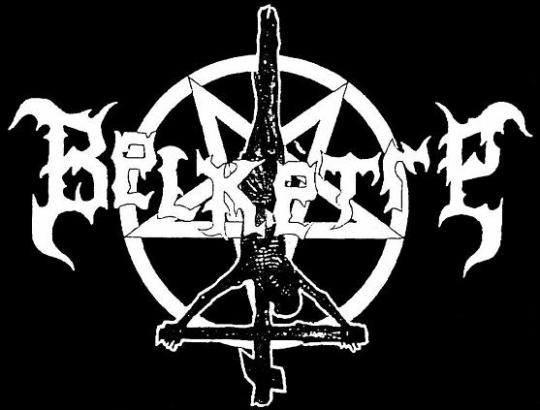
46 notes
·
View notes
Text
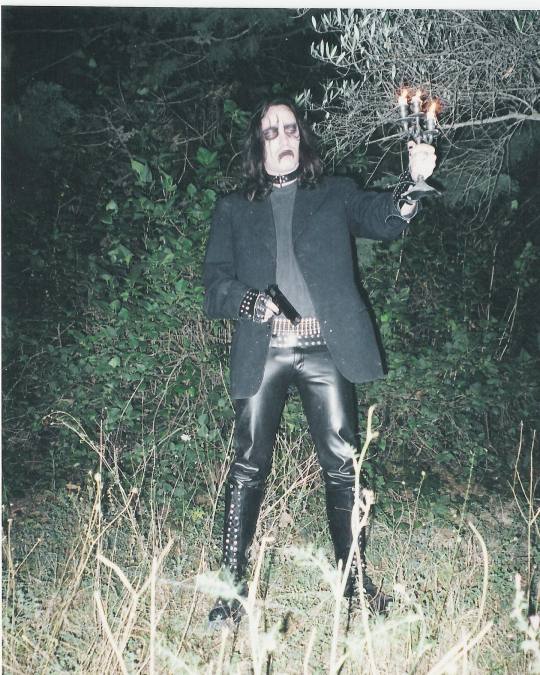
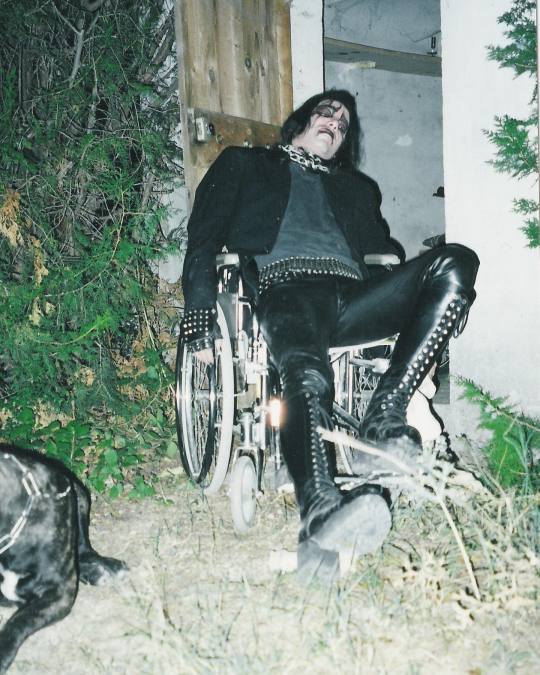
Mutiilation
Found these original photos of Willy/Mutiilation from my old archive, Noktu sent them to me for the layout of Tragic Empire version of Black Millieum CD, however we used only the black & white version, colored version was never really circulated, or maybe there were used in later repress?
pictures and text taken from Psychedelic Lotus Order/goatowarex facebook
#mutiilation#black metal#Meyhna'ch#Les Légions Noires#the black legions#france#Grabels#Occitanie#psychedelic lotus order#goatowarex
295 notes
·
View notes
Text
Dans la forêt...
album by Lord Aäkon Këëtreh, 1996
Genre: DSBM (Depression Suicidal Black Metal), ambience metal
He is a French Black Metal artist from the (now split-up) band "Les Légions Noires" ("The Black Legions"). This album is a full demo from the Aäkon Këëtreh project. They made two more album of the kind.
Personal opinion:
I personally like the sad, nostalgic and yet uplifting mood of this atmospheric black metal. I listen to this when alone and tired.
4 notes
·
View notes
Text
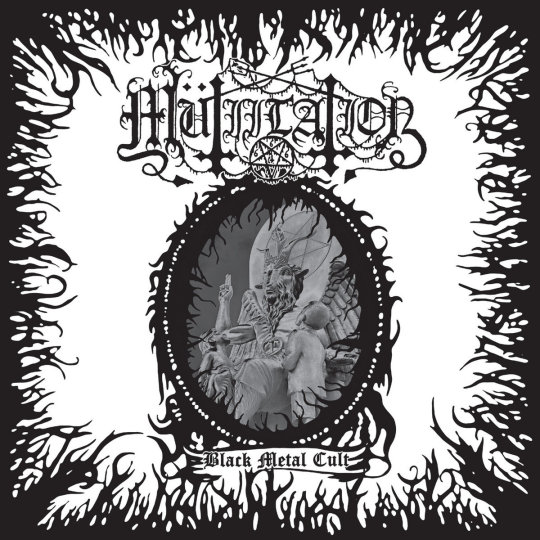
Mütiilation - Black Metal Cult - 2024
2 notes
·
View notes
Text
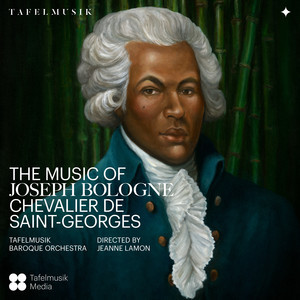


Chevalier de Saint-Georges
Joseph Bologne, Chevalier de Saint-Georges(December 25, 1745 – June 10, 1799), was a FrenchCreolevirtuoso violinist and composer, who was conductor of the leading symphony orchestra in Paris.
Saint-Georges was born in the then French colony ofGuadeloupe, the son of Georges de Bologne Saint-Georges, a wealthy married planter, and an enslaved African woman named Nanon. At the age of seven he was taken to France, and at the age of thirteen educated asgendarmeto the King. He received music lessons from François-Joseph Gossec and likely violin lessons from Jean-Marie Leclair, while continuing to study fencing.
In 1764 Antonio Lolli dedicated two concertos to Saint-Georges. In 1769 he joined a new symphony orchestra; two years later he was appointed concert master and soon started composing. In 1773 he was appointed conductor of "Le Concert des Amateurs". In 1775 he introduced the symphonie concertante, using the possibilities offered by a newbow. In 1776 he was proposed as the next conductor of the Paris Opera, but was subsequently denied this role by a petition by the divas of the time to the Queen. This then put an end to any aspirations that Saint-Georges had to becoming the music director of the institution. In 1778 he lived for 2.5 months next to Mozart in the Chaussee d'Antinand stopped composing instrumental works in 1785. He knew many composers, including Salieri,Gossec,Gretry,Mozart and Gluck. He commissioned and performed the Paris Symphonies by Haydn and travelled to London where he met with the Prince of Wales and George IIIin 1787.
Following the 1789 outbreak of the French Revolution, the younger Saint-Georges served as a colonel of the Légion St.-Georges(established in 1792), the first all-African regiment in Europe, fighting on the side of the French First Republic. Today the Chevalier de Saint-Georges is best remembered as the first well-known classical composer of African ancestry. He composed numerous string quartets and other instrumental pieces, violin concertos as well as operas. Ludwig van Beethoven held his music and his views very highly.

Joseph Bologne was born in Baillif, Basse-Terre as the son of a planter and former councilor at the parliament of Metz, Georges de Bologne Saint-Georges (1711–1774) and Nanon, his wife's 16-year-old enslaved African servant of Senegalese origin, who served as her personal maid. Bologne was legally married to Elisabeth Mérican (1722–1801) but acknowledged his son by Nanon and gave him his surname
Starting in the 17th century, a Code Noir had been law in France and its colonial possessions. On April 5, 1762, King Louis XV decreed that "Nègres et gens de couleur" (Africans and people of color) must register with the clerk of the Admiralty within two months. Many leading Enlightenment thinkers like Voltaire argued that Africans and their descendants were inferior to White Europeans. These laws and racist attitudes towards mixed-race people made it impossible for Joseph Bologne to marry anybody at his level of society, though he did have at least one serious romantic relationship.

Musical life and career
François-Joseph Gossec
Nothing is known about Saint-Georges' early musical training. Given his prodigious technique as an adult, Saint-Georges must have practiced the violin seriously as a child. There has been no documentation found of him as a musician before 1764, when violinistAntonio Lollicomposed two concertos, Op. 2, for him,[note 1]and 1766, when composerFrançois-Joseph Gossecdedicated a set of six string trios, Op. 9,to Saint Georges. Lolli may have worked with Bologne on his violin technique and Gossec on compositions.
(Beauvoir's novel says that "Platon", a fictional whip-toting slave commander onSaint-Domingue, "taught little Saint-Georges" the violin.[note 2])
Historians have discountedFrançois-Joseph Fétis' claim that Saint-Georges studied violin withJean-Marie Leclair. Some of his technique was said to reveal influence byPierre Gaviniès. Other composers who later dedicated works to Saint-Georges wereCarl Stamitzin 1770, and Avolio in 1778.
In 1769, the Parisian public was amazed to see Saint-Georges, the great fencer, playing as a violinist in Gossec's new orchestra,Le Concert des Amateurs. Four years later he became its concertmaster/conductor. In 1772 Saint-Georges created a sensation with his debut as a soloist, playing his first two violin concertos, Op. II, with Gossec conducting the orchestra. "These concertos were performed last winter at a concert of theAmateursby the author himself, who received great applause as much for their performance as for their composition." According to another source, "The celebrated Saint-Georges,mulatto fencer [and] violinist, created a sensation in Paris ... [when] two years later ... at theConcert Spirituel, he was appreciated not as much for his compositions as for his performances, enrapturing especially the feminine members of his audience."
Young Saint-Georges in 1768, aged 22. The three roses on his lapel were a Masonic symbol.
Saint-Georges's first compositions, Op. I, were a set of six string quartets, among the first in France, published by famed French publisher, composer, and teacherAntoine Bailleux. They were inspired byHaydn's earliest quartets, brought from Vienna by Baron Bagge. Saint-Georges wrote two more sets of six string quartets, threeforte-pianoand violin sonatas, a sonata for harp and flute, and six violin duets. The music for three other known compositions was lost: a cello sonata, performed in Lille in 1792, a concerto for clarinet, and one for bassoon.
Saint-Georges wrote twelve additional violin concertos, two symphonies, and eightsymphonie-concertantes, a new, intrinsically Parisian genre of which he was one of the chief exponents. He wrote his instrumental works over a short span of time, and they were published between 1771 and 1779. He also wrote sixopéras comiquesand a number of songs in manuscript.
In 1773, when Gossec took over the direction of the prestigiousConcert Spirituel, he designated Saint-Georges as his successor as director of theConcert des Amateurs. After fewer than two years under the younger man's direction, the group was described[by whom?]as "Performing with great precision and delicate nuances [and] became the best orchestra for symphonies in Paris, and perhaps in all of Europe."
Palais de Soubise, venue of Saint-Georges' orchestra
In 1781, Saint Georges'sConcert des Amateurshad to be disbanded due to a lack of funding. Playwright andSecret du RoispyPierre Caron de Beaumarchaisbegan to collect funds from private contributors, including many of theConcert'spatrons, to sendmaterielaid for the American cause. The plan to send military aid via a fleet of fifty vessels and have those vessels return withAmerican rice, cotton, or tobacco ended up bankrupting the French contributors as theAmerican congressfailed to acknowledge its debt and the ships were sent back empty. Saint-Georges turned to his friend and admirer,Philippe D'Orléans, duc de Chartres, for help. In 1773 at the age of 26, Philippe had been elected Grand Master of the 'Grand Orient de France' after uniting all the Masonic organizations in France. Responding to Saint-Georges's plea, Philippe revived the orchestra as part of theLoge Olympique, an exclusive Freemason Lodge.
RenamedLe Concert Olympique, with practically the same personnel, it performed in the grand salon of thePalais Royal. In 1785, Count D'Ogny, grand master of the Lodge and a member of its cello section, authorized Saint-Georges to commissionHaydnto composesix new symphoniesfor the Concert Olympique. Conducted by Saint-Georges, Haydn's "Paris" symphonies were first performed at the Salle desGardes-Suissesof theTuileries, a much larger hall, in order to accommodate the huge public demand to hear Haydn's new works. QueenMarie Antoinetteattended some of Saint-Georges's concerts at the Palais de Soubise, arriving sometimes without notice, so the orchestra wore court attire for all its performances. "Dressed in rich velvet or damask with gold or silver braid and fine lace on their cuffs and collars and with their parade swords and plumed hats placed next to them on their benches, the combined effect was as pleasing to the eye as it was flattering to the ear." Saint-Georges played all his violin concertos as soloist with his orchestra.
#saint george#joseph bologna#paino#african#kemetic dreams#black mozart#afrakan#brownskin#afrakans#brown skin#african culture
41 notes
·
View notes
Text
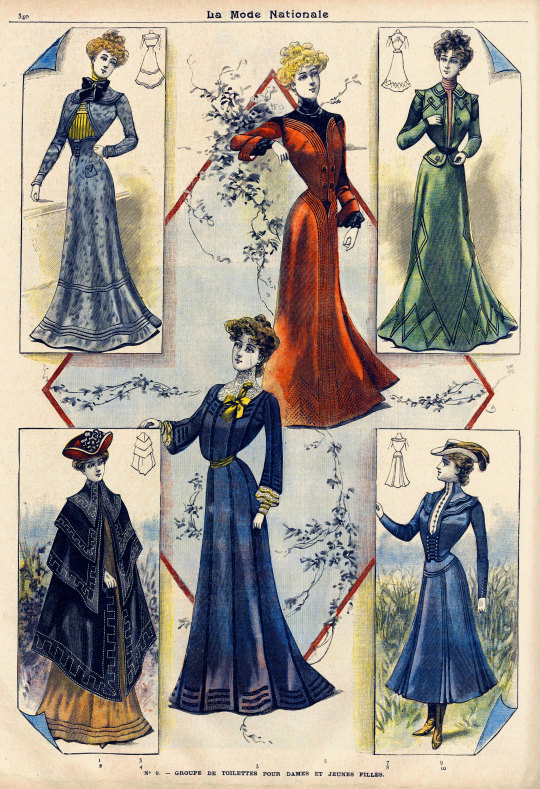
La Mode nationale, no. 43, 26 octobre 1901, Paris. No. 9. — Groupe de toilettes pour dames et jeune filles. Bibliothèque nationale de France
(1) Robe de visites pour jeune femme ou dame d'âge moyen, en bure d'Ecosse gris clair, à touffettes de poils ton sur ton. Jupe à corselet, taillée en forme; volant en forme à tête cachée sous des ganses noires et terminée par un plus petit volant en forme surmonté de quatre rangs de ganses. Sur le côté, pochette chasseur; le devant est ouvert en pointe et retenu par des barrettes. Boléro arrondi, fermé aussi par des barrettes, col rond; chemisette de velours vieil or; manche à coude légèrement élargie au bas.
(1) Visiting dress for young women or middle-aged ladies, in light gray Scottish bure, with tone-on-tone tufts of hair. Corselet skirt, cut to shape; shaped ruffle with head hidden under black braids and finished with a smaller shaped ruffle topped with four rows of braids. On the side, hunter's pocket; the front is open at a point and held in place by barrettes. Rounded bolero, also closed with barrettes, round neck; old gold velvet shirt; elbow sleeve slightly widened at the bottom.
Matériaux: 6m,50 de tissu gris; 0m,75 de velours.
—
(2) Manteau de promenade pour dame âgée, en drap noir, composé de quatre collets-châle bordés de grecques de piqûres blanches.
(2) Walking coat for an elderly lady, in black cloth, made up of four shawl collars edged with white stitching.
Matériaux: 4 mètre de drap.
Tricorne de feutre rouge, bordé de blanc et piqué d'un gros chou de taffetas blanc liséré au bord d'une chenille noire.
Tricorne of red felt, edged in white and stitched with a large white taffeta puff bordered with a black chenille.
—
(3) Dos de la figure 1.
(4) Dos de la figure 2.
(5) Robe de réception pour jeune femme ou jeune fille, en lainage mélangé bleu, mauve et rose. Jupe à lés rapportés sous des galons noirs façonnés. Entre les lés, galons appliqués. Corsage blouse garni comme la jupe et décolleté en rond sur une guimpe de dentelle renaissance. Nœud de corsage et ceinture en velours chamois. Manche évasée sur un bouffant de dentelle cerclé de velours étroits.
(5) Reception dress for young woman or girl, in blue, mauve and pink wool blend. Skirt with strips under shaped black braid. Between the strips, applied braids. Blouse bodice trimmed like the skirt and round neckline on a renaissance lace wimple. Bodice bow and belt in chamois velvet. Flared sleeve on a lace bouffant surrounded by narrow velvet.
Matériaux: 6 mètres de lainage.
—
(6) Robe de visites pour jeune femme, en drap rouge "Légion d'Honneur." Jupe ornée de dents de piqûres qui rappellent sur la manche l'ornementation du boléro. Parements Augereau et bouffants de panne noire.
(6) Visiting dress for young women, in red cloth “Légion d’Honneur.” Skirt decorated with stitching teeth which recall the bolero ornamentation on the sleeve. Augereau facings and black purlin puffers.
Matériaux 5 mètres de drap, 1m,50 de panne.
(7) Dos de la figure 9.
(8) Dos de la figure 10.
(9) Robe de ville pour jeune femme ou jeune fille, en homespun rainette. Jupe en forme ornée de ganses noires dessinant des losanges. Veste à basque ronde, garnie comme la jupe et entr'ouverte sur un dessous de soie vieux rose; ceinture de velours noir sur la veste. Manche à coude surmontée d'une épaulette arrondie comme le col.
(9) City dress for young women or girls, in homespun rainette. Shaped skirt decorated with black braids drawing diamonds. Round peplum jacket, trimmed like the skirt and half-open over an old pink silk underside; black velvet belt on the jacket. Elbow sleeve topped with a rounded shoulder pad like the collar.
Matériaux: 6 mètres d'homespun; 0m,50 de soie rose.
—
(10) Costume de chasse pour jeune femme ou jeune fille , en cover-coat bleu clair, Jupe plissée par groupes, montée au-dessous d'une partie plate enserrant les hanches par des repincés. Boléro ajusté, orné d'un double col en forme bordé de repincés. Le devant ouvre aux trois quarts sur un gilet de drap blanc; le bas se ferme par des brandebourgs et de petits boutons d'argent. Manche à coude.
(10) Hunting suit for a young woman or girl, in a light blue cover-coat, Skirt pleated in groups, mounted below a flat part encircling the hips with repins. Fitted bolero, decorated with a double shaped collar edged with repinqués. The front opens three-quarters to reveal a white cloth vest; the bottom closes with frogs and small silver buttons. Elbow sleeve.
Matériaux: 5m,50 de cover-coat.
Chapeau cantinière en feutre gris clair cerclé de velours noir et piqués de deux couteaux bruns.
Canteen hat in light gray felt rimmed with black velvet and stitched with two brown knives.
#La Mode nationale#20th century#1900s#1901#on this day#October 26#periodical#fashion#fashion plate#color#description#bibliothèque nationale de france#dress#collar#cape
22 notes
·
View notes